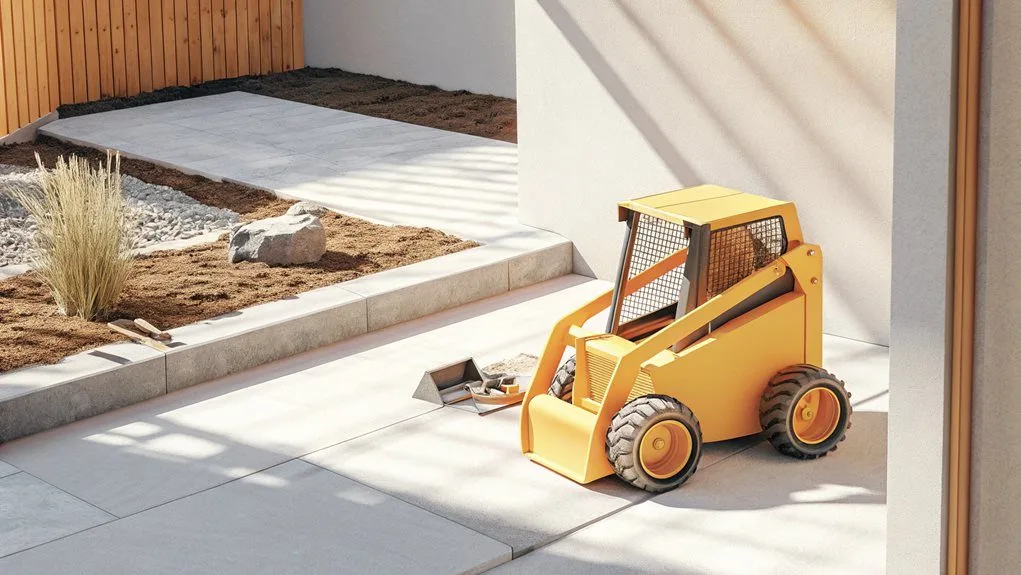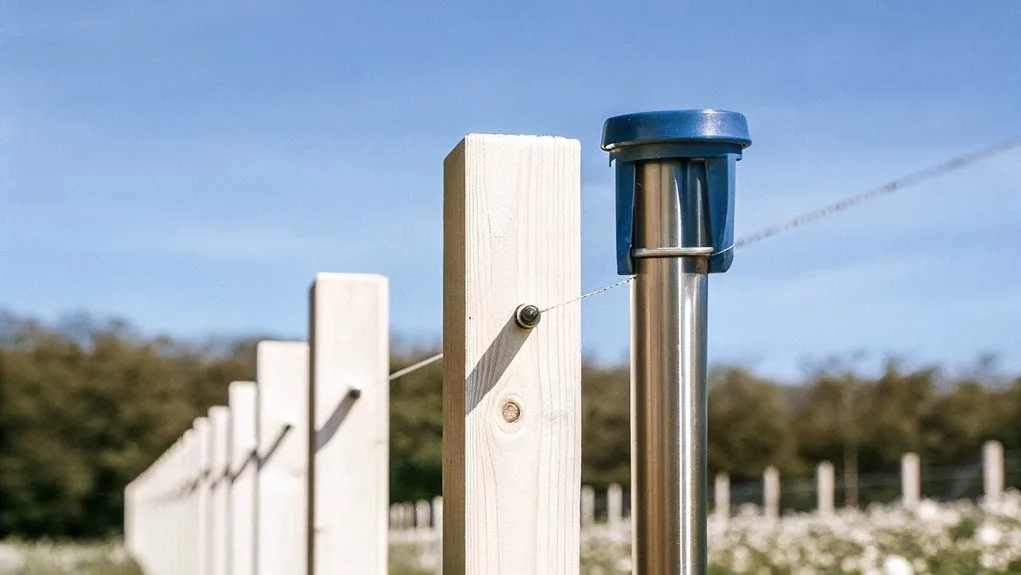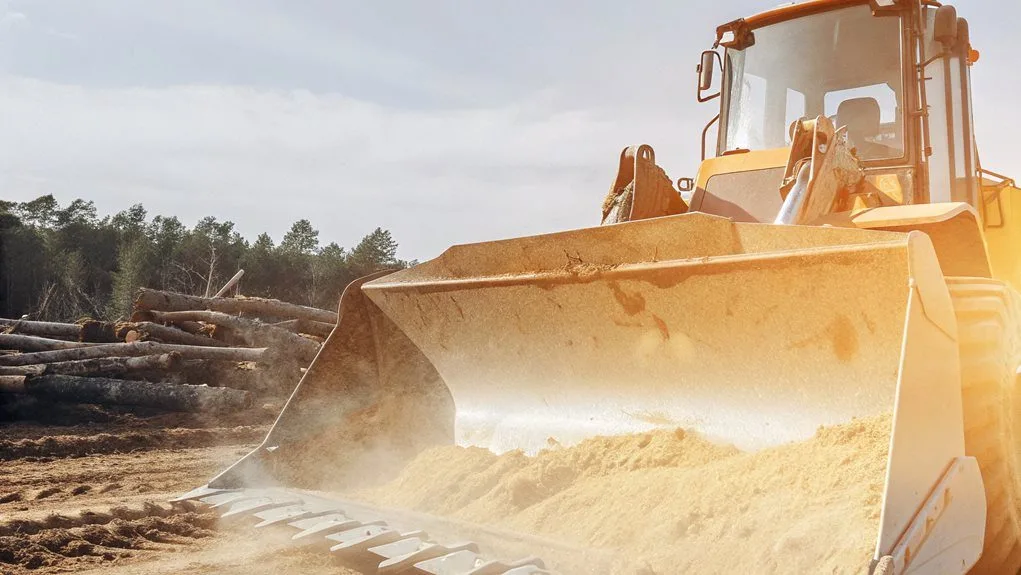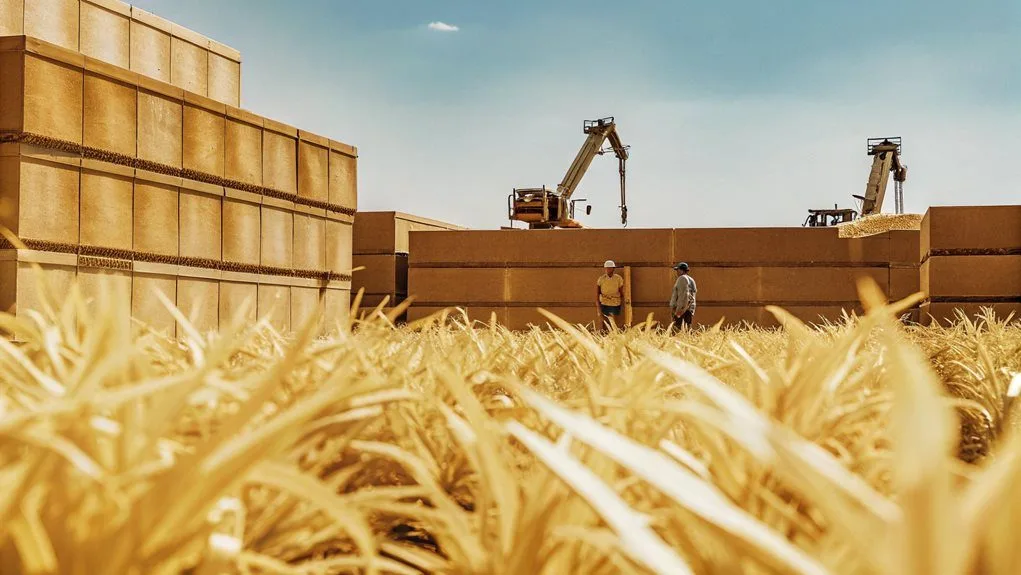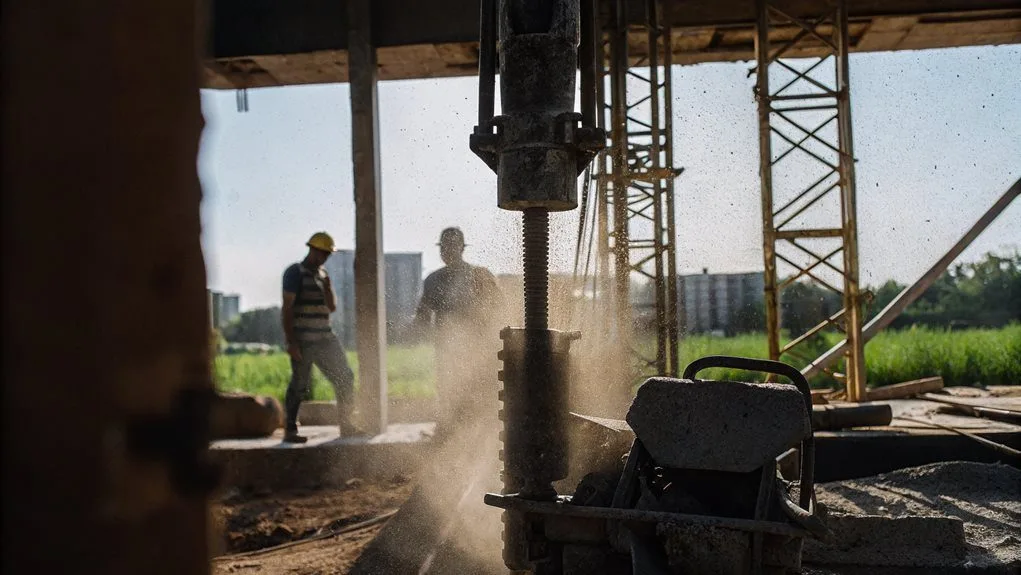So, you’re stuck choosing between petrol and diesel plate compactors? Here’s the scoop: diesel’s king for heavy-duty work, providing power and torque when you really need it—like when compacting dense clay. But if you’re just levelling your backyard, petrol’s your buddy—easier to start and quieter, so you won’t irritate the neighbours.
Sure, petrol may cost more in the long run. Who knew compaction could be this complicated? Stick around, and we’ll unpack it all further.
Key Takeaways
- Diesel plate compactors are ideal for heavy-duty tasks and provide superior torque and fuel efficiency on tougher materials.
- Petrol compactors are easier to start and suitable for quick, lighter jobs with high-frequency vibrations on less dense materials.
- While diesel models have higher upfront costs, they offer long-term savings through better fuel efficiency and lower maintenance needs.
- For residential projects where noise is a concern, petrol engines are quieter and minimize disturbance to nearby areas.
- Consider job requirements: heavy-duty compaction favors diesel, while light and quick tasks can benefit from the ease of petrol engines.
Power and Performance Comparison
So, what’s the deal with petrol and diesel plate compactors when it comes to power and performance?
If you want serious muscle, diesel’s got you covered.
Diesel engines dish out more torque at lower speeds, making them champions for tough jobs like compacting dense clay. The diesel plate compactor is especially effective for heavy-duty tasks due to its robust design and power. The PME-C85T model is particularly suited for large-scale road construction, ensuring deep compaction in highway subgrades.
But hey, if you’re looking for something light and breezy, petrol units are easier to start—especially when the weather’s grumpy.
Now, petrol compactors may be your best mate for quick jobs with high-frequency vibrations. They’re like that over-enthusiastic buddy who can handle light materials quickly.
But for heavy-duty tasks, diesel’s your go-to, covering more ground faster.
So, are you team petrol or diesel?
Weigh your project needs carefully, or risk being left in the dust!
Fuel Efficiency and Cost Analysis
What’s the real scoop on fuel efficiency and cost when you’re picking between petrol and diesel plate compactors?
Well, if you want your project to outlast your last relationship, diesel’s your bloke.
Sure, diesel compactors might cost a bit more upfront, but with less fuel consumption and lower maintenance needs, they save you rands over time. Fuel efficiency is particularly important in reducing overall operational costs, especially for long-term projects. Additionally, diesel plate compactors provide high power output for heavy-duty compaction tasks, making them ideal for larger projects.
Diesel compactors may come with a higher price tag, but they’ll save you cash down the line with their efficiency and durability.
Plus, they last longer—your wallet will thank you later.
Petrol engines are cheaper to hire, but don’t be fooled; you’ll pay for it in fuel costs and frequent upkeep.
And if you think you can just let it sit idle all day, forget it—downtime means wasted cash!
Environmental Considerations
When you’re wrestling with the choice between petrol and diesel plate compactors, it’s not just about fuel efficiency and cost.
You’ve got the environment to think about too—yikes!
Petrol and diesel engines spew out pollutants that could choke the air quality.
Y’know, the stuff we all breathe?
Electric models, on the other hand, run emission-free, practically giving Mother Nature a hug. Electric machines reduce harmful pollutants too. Moreover, the maximum compaction achieved by diesel models can lead to more efficient landfill usage and a reduced environmental footprint.
Plus, let’s be real; diesel engines might meet stricter regulations, adding to your costs.
So, if you’re looking to avoid a hefty fine and keep your conscience clear, electric compactors are a solid bet.
They not just spare the air but also sound like a gentle breeze—what a bonus!
Who wouldn’t want that?
Operational Suitability for Various Sites
How do you decide the best plate compactor for your job site?
It’s a real head-scratcher, isn’t it?
If you’re tackling heavy-duty work, diesel’s where it’s at—more torque and fuel efficiency. This is especially crucial for managing compaction force effectively in tougher materials. Additionally, compacting ground surface can prevent shifts from moisture or pressure, ensuring a stable foundation.
For heavy-duty tasks, diesel is your best bet—offering superior torque and fuel efficiency for the job at hand.
But if you’re just levelling a back garden, petrol’s your mate.
It’s easier to start and maintain; who wants to wrestle with a stubborn engine, right?
Got granular materials?
Go diesel for that higher frequency.
For cohesive soils, the petrol compactors will have you compacting away with ease.
Then there’s the noise—petrol’s quieter, a brilliant perk if you’re in a residential area.
So, choose wisely, or you’ll end up with a machine that just can’t keep up with your ambitions.
No one wants that frustration!
Maintenance and Long-term Reliability
Choosing the right plate compactor is only half the battle; keeping it running smoothly is the other.
Seriously, have you ever tried to battle a machine that hates you?
Regular maintenance is key.
That means checking the engine, cleaning the compaction plate, and yes, changing that oil.
If you choose diesel, congratulations!
You’ll get better fuel efficiency, but surprise!
Higher repair bills and complexity.
Glad you’re in the club!
And petrol engines?
Easy to start, but like that friend who never shows up to the party.
Don’t forget storage; a dry spot away from the weather is a must.
After all, nobody wants a rusty, sad machine sulking in the corner while you’re trying to impress the neighbours, right?
Conclusion
So, you’ve weighed petrol against diesel and still can’t decide? Welcome to the club! If only choosing a compactor was as easy as picking a Netflix show—oh wait, there’s no “next episode” button here! Remember, each option has its perks and quirks. Diesel’s efficiency is like finding an old-school rotary phone; it works but feels outdated. Finally, whether you’re paving a driveway or a pathway to a midlife crisis, pick what fits your budget—and sanity!

